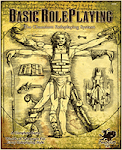After taking a break from my effort to complete all the SF books in the NPR Top 100 Science Fiction and Fantasy Books, during which time I read the John Carter of Mars trilogy (not on the list, but entertaining), I returned to my reading project over my recent vacation with the monumental Anathem, by Neal Stephenson. I had one brief flirtation with Stephenson's work back in the late '90s when a friend of mine insisted I read Snow Crash. I'm not much of a cyberpunk fan and I just wasn't ready to appreciate Stephenson's work at the time, but I'm glad I decided to give him a second look. Anathem relates the story of the Concent of Saunt Edhar, a monastery (or "math" as they are referred to on Arbre, the planet upon which the novel is set) dedicated not to religious reflection, but to science (theorics) and philosophy (metatheorics). As a result of thousands of years of tumultuous history, the mathic system has come to its present form, sequestered from the outside world, denied access to most technology (praxis) and tasked with keeping records of humanity's accumulated knowledge as civilization rises, falls and rises again. In exchange for allowing the mathic world certain priviledges, the Secular Power reserves the right to call out or evoke individual avout (monastic members) in times of great need if it feels they could be of some value.
[Minor spoilers ahead]:
Things really get tense when the Secular Power starts evoking several avout at a time and one particularly beloved older avout even gets the aut of Anathem (a combination of excommunication and expulsion) for engaging in some undisclosed, but seriously forbidden research. In short order, the remaining avout determine that an alien spacecraft has assumed orbit above the planet. Awesomeness ensues.
This book is a challenging read, no question. There are lengthy philosophical discussions, especially between mathic orders who descend from Saunt Halikaarn and those who claim descent from Saunt Proc. The philosophical differences between these two correspond to Platonic realism and mathematical formalism, respectively. Overlain on top of all this is a mountain of unfamiliar terminology. A cellphone is a jeejah, a video camera is a speelycaptor. Yet, despite all that, Anathem is a real pageturner. I read the entire book, just shy of a thousand pages, in under two weeks. Now, I'll have to make it up to my kids. I can't really say if you, the gentle reader, will love this book or hate it. It definitely will require a certain type of person to appreciate it, but I can say I never read a book before that made me want to go read up on Plato's Theory of Forms.
I suppose I should prepare myself for more Stephenson awesomeness, Snow Crash, The Diamond Age and Cryptonomicon are all on the NPR list. I'm getting a little light-headed just thinking about it.
-Rognar-
New Blackmoor T shirt from WotC on Amazon
3 hours ago



No comments:
Post a Comment